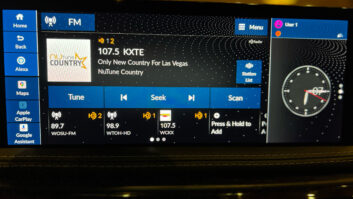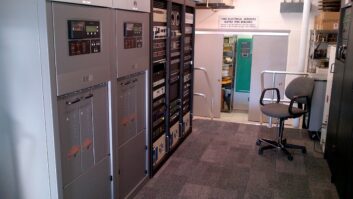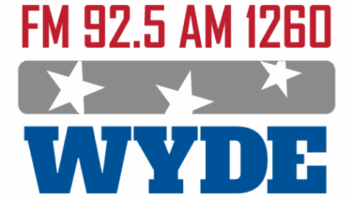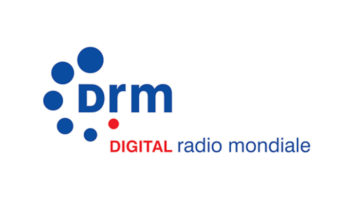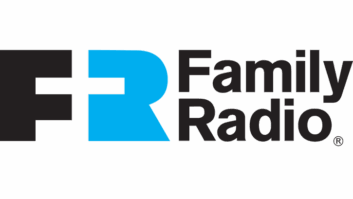IBOC Will Never Hit The Masses If Marketing, Promotion Aren’t a Priority
I had a talk the other day with a longtime friend and fellow radio geek-wizard in a smaller market. I asked him what his station’s plans were for digital broadcasting. His answer was, “None.”
“Never?”
“Nope. Not for the foreseeable future.”
“Why?”
“The fees, the lack of radios and XM and Sirius are running marketing rings around Ibiquity out here. Nobody knows about IBOC. Who cares?”
I know that this story is anecdotal, but it does beg the real question: “Ibiquity, Ibiquity, where art thy marketing?”
Consider:
-
How many times have you heard an ad for the Ibiquity in-band, on-channel HD Radio digital, CD-quality radio in any media, print or broadcast?
-
How many ads have you heard or seen for Sirius Satellite or XM Satellite?
You don’t have to tell me your answers. It wouldn’t be something you’d want to share anyway, and most of us have the same answers you do.
Folks, we have a problem here. It is called public relations at Ibiquity, or rather, the lack of it.
Where is the marketing support that is supposed to help launch Ibiquity IBOC HD Radio into the public mainstream of the electronics industry? Where are the ads on radio, TV and in print? As it stands right now, Ibiquity isn’t even on the public’s radar screens. Just walk into any Radio Shack and ask about Ibiquity or HD Radio. You’ve got questions, they’ve got just blank stares. Or, their response is, “Oh, yeah! Sirius! Sure, we have that! Right over here!”
That, folks, is a danger sign.
Can’t forget the Motor City
How come there were, until mid-2004, no Ibiquity HD Radio stations in the most important market in the country for all new mobile sound technologies, Detroit? Didn’t anyone at Ibiquity understand how important it was that Detroit be one of the first markets into which HD Radio should have been introduced? Doesn’t anyone understand that all the decision-making about such things as the makeup of in-car sound systems, including the Japanese and many of the European cars, are made first in Detroit? Doesn’t anyone understand that it is the auto industry that usually leads in the development of sound technology?
I’m from Detroit, so I understand this. In Detroit, the automobile absolutely rules, so it is important that anything reliant on the automobile be involved with Detroit. Every marketing major in college should – why doesn’t Ibiquity?
Crawford Broadcasting, Clear Channel and other broadcasting chains have committed themselves to the growth and development of HD Radio on their stations across the country. They’ve had to, in their own enlightened interests. But that’s only half the battle. That’s the choir talking to the choir. We need to get the word to the congregation – the listeners – and get them interested and involved. They have much to gain by doing so. We as an industry have much to lose if we don’t.
Note the waivers
Ibiquity’s licensing fee revenues will be much greater for receiver sales than they ever could be for the transmitter end. Which brings me to the next point: Just where is the good in charging all broadcasters a license fee for the use of the technology, given the circumstances I’ve just mentioned?
Note that when push came to shove, those Detroit-area broadcasters that signed up to inaugurate HD Radio in Detroit, on an emergency basis, were rewarded with license fee reductions or outright wavers. That should be another message to the folks at Ibiquity: Charge the license feeds on the consumer end and keep them low. And cut out taxing the broadcasters for making your technology available to the end-user. Your reward will be at the bank.
The problem of marketing HD Radio where there are no HD signals yet also will be solved, a problem XM and Sirius don’t have. Make the signals happen, market it, keep the receiver licensing fees low, remove the licensing fees for the transmit end and they will come.
I have a partial solution, but it asks: Is Ibiquity’s solution to its marketing shortcomings simply to turn the marketing of the technology over to the local stations that use it? If so, why didn’t they just tell us? Not that the station managers and sales departments would go for it, but why not suggest a trade-out of ad time for licensing fees, if you have to?
Even so, doesn’t such a strategy inevitably give rise to a spotty, fragmented and possibly contradictory marketing effort? And, doesn’t that let the door open for a “divide and conquer” strategy by the likes of XM, Sirius or Leonard Kahn, who always seems to throw a monkey wrench into the works? Does the thought of HD Radio suffering the same fate as Motorola’s C-Quam AM stereo, which for its time was a great format, bother you?
Maybe it should. And here’s what I suggest Ibiquity do about it. If Ibiquity has a marketing rep, the company should give him a new set of marching orders: “Get visible to the public, now!” If those orders are already delivered but not being followed, get a new marketing rep. Either way, get visible with the public immediately.
Do what it takes to get HD Radio on the air and listened to, everywhere. The audio quality, on both FM and AM, will sell itself. It sure beats having the public pay $10 and up for radio every month.
Addendum: I am not alone in my thinking, nor did I think I’d be. The president, CEO and chairman of Emmis Communications, Jeff Smulyan, has echoed similar sentiments, quoted in Inside Radio in January. As my friend from a small-market operation put it, “There seems to be too many parallels to the situation which occurred with AM stereo in the 1980s and ’90s.”
That sort of thinking is going to have to stop, and it’s Ibiquity that has to take the lead in stopping it – Crawford, Clear Channel and the major markets notwithstanding.
The major markets are, for the most part, embracing HD Radio. I don’t have a problem with that. And ironically, it’s in the major markets where XM and Sirius have, to this point, the lesser measure of success, simply because local radio there can satisfy almost any taste.
But it’s in the medium and small markets where HD Radio is most needed, because it is in the medium and small markets where the lesser choices opens the door widest for the acceptance of satellite radio. It’s exactly there where the listeners need to know there is a quality audio alternative to paying $10 a month just to listen to radio without any possibility of local content. And it’s exactly the place where HD Radio isn’t happening yet.
But time is running out. The time to make the big marketing move is now, Ibiquity. You, and radio broadcasting in this country, have too much to lose to not to get the population of the United States on your bandwagon and keep them there.
This commentary appeared in The Local Oscillator, the newsletter of Crawford Broadcasting Co. Corporate Engineering. RW welcomes other points of view.
